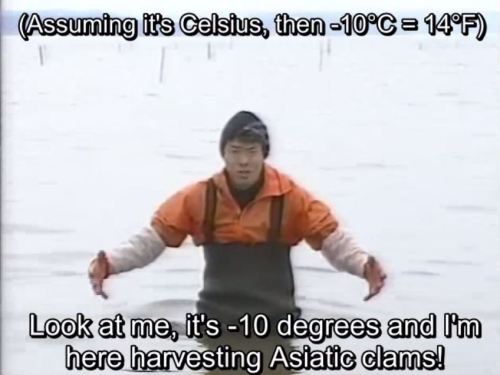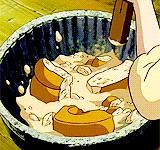Smparticle2 - Untitled






More Posts from Smparticle2 and Others










Never be afraid to fail.
Watch all of ‘It’s Always Sunny in Philadelphia’s" Charlie Day’s inspiring commencement speech here.

Self-assembling nanoparticle arrays can switch between a mirror and a window
By finely tuning the distance between nanoparticles in a single layer, researchers have made a filter that can change between a mirror and a window.
The development could help scientists create special materials whose optical properties can be changed in real time. These materials could then be used for applications from tuneable optical filters to miniature chemical sensors.
Creating a ‘tuneable’ material - one which can be accurately controlled - has been a challenge because of the tiny scales involved. In order to tune the optical properties of a single layer of nanoparticles - which are only tens of nanometres in size each - the space between them needs to be set precisely and uniformly.
To form the layer, the team of researchers from Imperial College London created conditions for gold nanoparticles to localise at the interface between two liquids that do not mix. By applying a small voltage across the interface, the team have been able to demonstrate a tuneable nanoparticle layer that can be dense or sparse, allowing for switching between a reflective mirror and a transparent surface. The research is published today in Nature Materials.
Read more.




Snowflakes from William Scoresby’s des Jüngern Tagebuch einer reise auf den Wallfischfang, (Hamburg: F. Perthes, 1825), the German translation of Journal of a voyage to the northern whale-fishery.
Scoresby was an Arctic explorer with interests in meteorology and navigation, who led an Arctic exploration in the early 1800s to the area around Greenland.

Earlier this year, The Lutetium Project explored how microfluidic circuits are made, and now they are back with the conclusion of their microfluidic adventures. This video explores how microfluidic chips are used and how microscale fluid dynamics relates to other topics in the field. Because these techniques allow researchers very fine control over droplets, there are many chemical and biological possibilities for microfluidic experiments, some of which are shown in the video. Microfluidics in medicine are also already more common than you may think. For example, test strips used by diabetic patients to measure their blood glucose levels are microfluidic circuits! (Video and image credit: The Lutetium Project; submitted by Guillaume D.)


Self-assembling particles brighten future of LED lighting
Just when lighting aficionados were in a dark place, LEDs came to the rescue. Over the past decade, LED technologies – short for light-emitting diode – have swept the lighting industry by offering features such as durability, efficiency and long life.
Now, Princeton engineering researchers have illuminated another path forward for LED technologies by refining the manufacturing of light sources made with crystalline substances known as perovskites, a more efficient and potentially lower-cost alternative to materials used in LEDs found on store shelves.
The researchers developed a technique in which nanoscale perovskite particles self-assemble to produce more efficient, stable and durable perovskite-based LEDs. The advance, reported January 16 in Nature Photonics, could speed the use of perovskite technologies in commercial applications such as lighting, lasers and television and computer screens.
“The performance of perovskites in solar cells has really taken off in recent years, and they have properties that give them a lot of promise for LEDs, but the inability to create uniform and bright nanoparticle perovskite films has limited their potential,” said Barry Rand an assistant professor of electrical engineering and the Andlinger Center for Energy and the Environment at Princeton.
Read more.














Studio Ghibli + Food

Chemists discover structure of bacterial enzyme that generates useful polymers
MIT chemists have determined the structure of a bacterial enzyme that can produce biodegradable plastics, an advance that could help chemical engineers tweak the enzyme to make it even more industrially useful.
The enzyme generates long polymer chains that can form either hard or soft plastics, depending on the starting materials that go into them. Learning more about the enzyme’s structure could help engineers control the polymers’ composition and size, a possible step toward commercial production of these plastics, which, unlike conventional plastic formed from petroleum products, should be biodegradable.
“I’m hoping that this structure will help people in thinking about a way that we can use this knowledge from nature to do something better for our planet,” says Catherine Drennan, an MIT professor of chemistry and biology and Howard Hughes Medical Institute Investigator. “I believe you want to have a good fundamental understanding of enzymes like this before you start engineering them.”
Read more.

Hold a buoyant sphere like a ping pong ball underwater and let it go, and you’ll find that the ball pops up out of the water. Intuitively, you would think that letting the ball go from a lower depth would make it pop up higher – after all, it has a greater distance to accelerate over, right? But it turns out that the highest jumps comes from balls that rise the shortest distance. When released at greater depths, the buoyant sphere follows a path that swerves from side to side. This oscillating path is the result of vortices being shed off the ball, first on one side and then the other. (Image and research credit: T. Truscott et al.)
-
 transgwender616 liked this · 1 week ago
transgwender616 liked this · 1 week ago -
 drydrycactus liked this · 1 week ago
drydrycactus liked this · 1 week ago -
 neccturtle liked this · 1 week ago
neccturtle liked this · 1 week ago -
 duerme07 reblogged this · 1 week ago
duerme07 reblogged this · 1 week ago -
 twilit-beast reblogged this · 1 week ago
twilit-beast reblogged this · 1 week ago -
 twilit-beast liked this · 1 week ago
twilit-beast liked this · 1 week ago -
 belladonnaboudreaux liked this · 1 week ago
belladonnaboudreaux liked this · 1 week ago -
 megamindsboots reblogged this · 1 week ago
megamindsboots reblogged this · 1 week ago -
 mysterious-corpse liked this · 1 week ago
mysterious-corpse liked this · 1 week ago -
 leosartden liked this · 1 week ago
leosartden liked this · 1 week ago -
 leosartden reblogged this · 1 week ago
leosartden reblogged this · 1 week ago -
 calkoma liked this · 1 week ago
calkoma liked this · 1 week ago -
 davinenaughter liked this · 1 week ago
davinenaughter liked this · 1 week ago -
 homuraakemiisbestgirl liked this · 1 week ago
homuraakemiisbestgirl liked this · 1 week ago -
 cswiftrock liked this · 1 week ago
cswiftrock liked this · 1 week ago -
 megan-is-mia liked this · 1 week ago
megan-is-mia liked this · 1 week ago -
 goateyedgweilo liked this · 1 week ago
goateyedgweilo liked this · 1 week ago -
 hunna77 reblogged this · 1 week ago
hunna77 reblogged this · 1 week ago -
 monkeylizard reblogged this · 1 week ago
monkeylizard reblogged this · 1 week ago -
 monkeylizard liked this · 1 week ago
monkeylizard liked this · 1 week ago -
 asheps liked this · 1 week ago
asheps liked this · 1 week ago -
 kaligaga reblogged this · 1 week ago
kaligaga reblogged this · 1 week ago -
 bamrightinthesoul reblogged this · 1 week ago
bamrightinthesoul reblogged this · 1 week ago -
 onetwothreemany reblogged this · 1 week ago
onetwothreemany reblogged this · 1 week ago -
 onetwothreemany liked this · 1 week ago
onetwothreemany liked this · 1 week ago -
 mossknit reblogged this · 1 week ago
mossknit reblogged this · 1 week ago -
 mossknit liked this · 1 week ago
mossknit liked this · 1 week ago -
 consolationblog reblogged this · 1 week ago
consolationblog reblogged this · 1 week ago -
 michelleabc123 reblogged this · 1 week ago
michelleabc123 reblogged this · 1 week ago -
 azusasstrawberry69 reblogged this · 1 week ago
azusasstrawberry69 reblogged this · 1 week ago -
 azusasstrawberry69 liked this · 1 week ago
azusasstrawberry69 liked this · 1 week ago -
 dropkicktifff reblogged this · 1 week ago
dropkicktifff reblogged this · 1 week ago -
 millionsnowlivingwillneverdie liked this · 1 week ago
millionsnowlivingwillneverdie liked this · 1 week ago -
 theconfusedacorn liked this · 1 week ago
theconfusedacorn liked this · 1 week ago -
 glassgallows liked this · 1 week ago
glassgallows liked this · 1 week ago -
 jan-pansoki liked this · 1 week ago
jan-pansoki liked this · 1 week ago -
 pointlessprinceps reblogged this · 1 week ago
pointlessprinceps reblogged this · 1 week ago -
 electricslug reblogged this · 1 week ago
electricslug reblogged this · 1 week ago -
 mxcottonsocks liked this · 1 week ago
mxcottonsocks liked this · 1 week ago -
 red-umbrella-811 reblogged this · 1 week ago
red-umbrella-811 reblogged this · 1 week ago -
 red-umbrella-811 liked this · 1 week ago
red-umbrella-811 liked this · 1 week ago -
 andrikq reblogged this · 1 week ago
andrikq reblogged this · 1 week ago -
 viceversawrites reblogged this · 1 week ago
viceversawrites reblogged this · 1 week ago -
 itscorvid reblogged this · 1 week ago
itscorvid reblogged this · 1 week ago -
 crinkledcellophane liked this · 1 week ago
crinkledcellophane liked this · 1 week ago -
 zaxal reblogged this · 1 week ago
zaxal reblogged this · 1 week ago -
 shishkahuben liked this · 1 week ago
shishkahuben liked this · 1 week ago -
 nuniaxo liked this · 1 week ago
nuniaxo liked this · 1 week ago -
 a4tog6 reblogged this · 1 week ago
a4tog6 reblogged this · 1 week ago -
 mihamihoku liked this · 1 week ago
mihamihoku liked this · 1 week ago